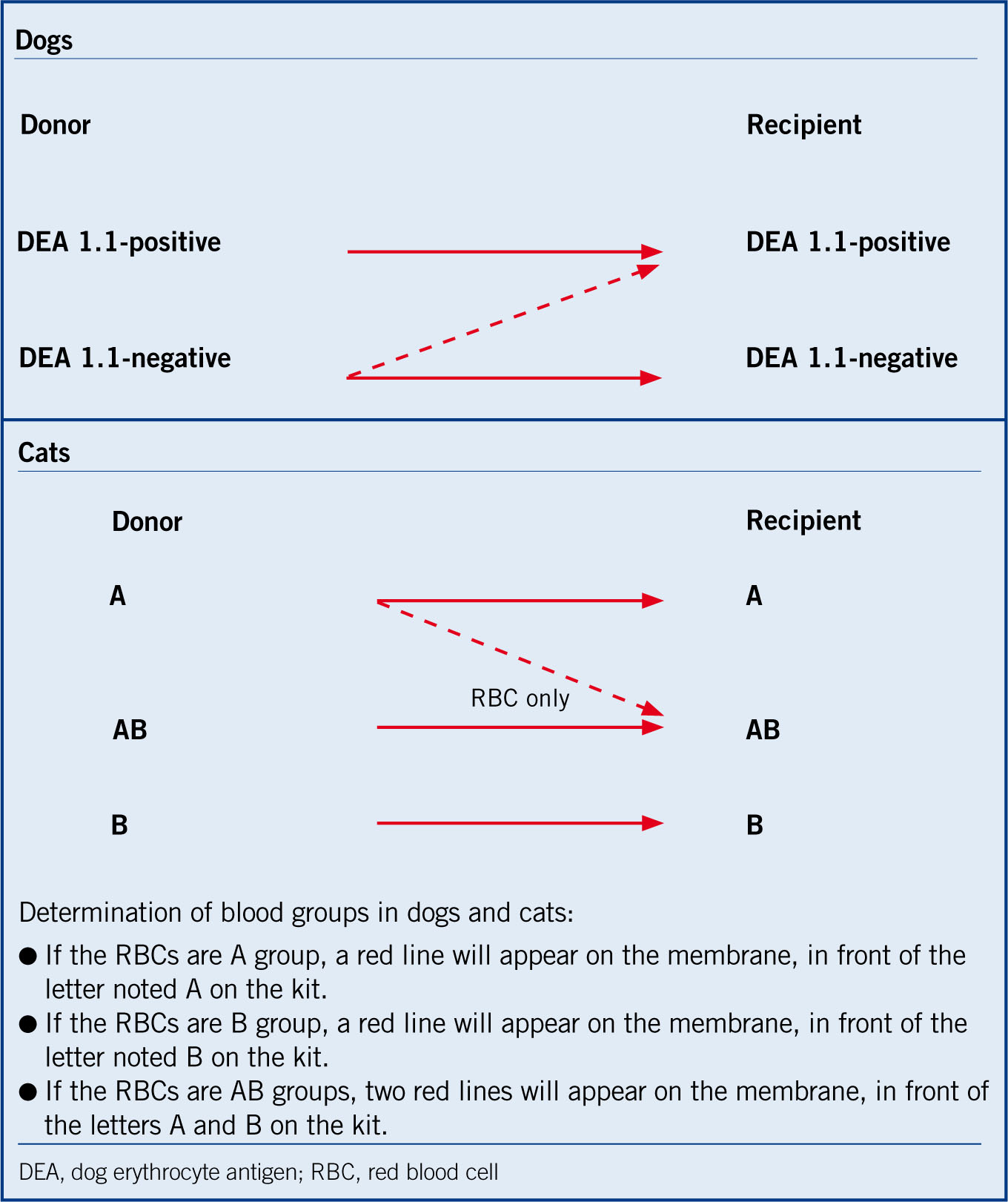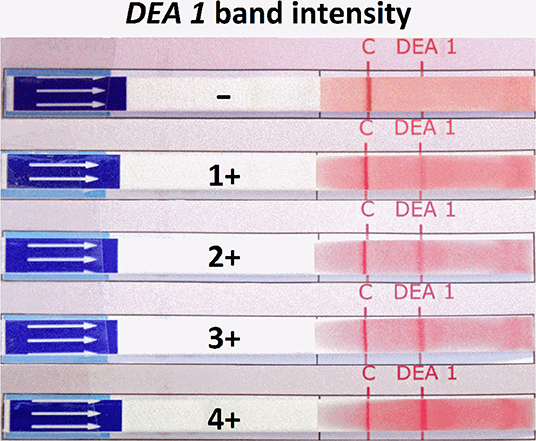Dog blood types, which are referred to as Dog Erythrocyte Antigens (DEA) followed by a number, have at least a dozen known types. A dog can have different blood types just like humans, and determining a dog’s blood type is important for blood transfusions and compatibility.
There is a universal donor blood type in dogs, similar to humans, which is DEA 1. 1 negative. However, unlike humans, there are more blood groups in dogs, and the rarest blood type can vary among different breeds. Knowing a dog’s blood type is crucial in veterinary medicine to ensure safe and successful blood transfusions.

Credit: www.facebook.com
Understanding Dog Blood Types
Understanding dog blood types is essential for veterinary professionals and dog owners alike. It helps determine blood compatibility for transfusions and ensures the safety and well-being of dogs in need of blood donations. Knowing your dog’s blood type can save their life in emergency situations.
What Are Dog Blood Types?
Dogs, just like humans, have different blood types. These blood types are determined by the presence or absence of specific antigens on the surface of red blood cells. Understanding dog blood types is essential in situations where blood transfusions may be required, such as in emergencies or surgeries.
Dog Erythrocyte Antigens (deas)
Dog Erythrocyte Antigens (DEAs) are unique markers found on the surface of red blood cells. Similar to the ABO blood group system in humans, DEAs are classified into different groups, including DEA 1.1, DEA 1.2, DEA 3, and so on. It is important to identify these specific antigens to determine compatibility for blood transfusions.
Variety Of Dog Blood Types
Dog blood types are classified based on the presence or absence of various DEAs. The different blood types include DEA 1.1-positive, DEA 1.1-negative, DEA 1.2-positive, DEA 1.2-negative, and others. Each blood type has its own unique properties and compatibility requirements.
Knowing the blood type of your dog is vital in case of an emergency or if your furry friend requires a blood transfusion. It is recommended to consult with a veterinarian who can perform a blood typing test to determine your dog’s blood type accurately and provide appropriate care.
Here are a few key points to remember:
- Dogs, like humans, have different blood types determined by antigens on the surface of red blood cells.
- Dog Erythrocyte Antigens (DEAs) are unique markers on red blood cells that determine blood type compatibility.
- DEAs include groups such as DEA 1.1, DEA 1.2, DEA 3, and more.
| Blood Type | DEA Presence | Compatibility |
|---|---|---|
| DEA 1.1-positive | DEA 1.1 | Compatible with DEA 1.1-positive and negative |
| DEA 1.1-negative | No DEA 1.1 | Compatible with DEA 1.1-negative (Universal Donor) |
| DEA 1.2-positive | DEA 1.2 | Compatible with DEA 1.2-positive and negative |
| DEA 1.2-negative | No DEA 1.2 | Compatible with DEA 1.2-negative |
Understanding the various dog blood types and their compatibility is crucial when it comes to blood transfusions. In cases where a blood transfusion is needed, finding a compatible donor dog is essential to ensure a successful outcome. If you are unsure about your dog’s blood type, consult your veterinarian who can perform a blood typing test and guide you accordingly.
Determining Dog Blood Types
Determining a dog’s blood type is crucial for various veterinary procedures, including blood transfusions, surgeries, and diagnostic tests. Just like humans, dogs have different blood types, and it is important to know their blood type to ensure the safety and effectiveness of these procedures.
How To Identify A Dog’s Blood Type
Identifying a dog’s blood type can be done through blood typing methods that are specifically designed for canines. These methods allow veterinarians to determine the specific blood type of a dog.
Dog Blood Typing Methods
There are different methods that veterinarians use to determine a dog’s blood type. These include:
- Agglutination Tests: This method involves mixing a small amount of the dog’s blood with known antibodies and observing whether the blood clumps together or agglutinates. The agglutination pattern helps identify the blood type.
- Antigen Detection: This method involves testing the dog’s blood for the presence of specific antigens that are associated with different blood types. The presence or absence of these antigens helps determine the blood type.
- DNA Typing: This method involves analyzing the dog’s DNA to identify specific genetic markers related to blood types. DNA typing provides accurate and reliable results but is more complex and expensive compared to other methods.
Importance Of Knowing A Dog’s Blood Type
Knowing a dog’s blood type is crucial for several reasons:
- Safe Blood Transfusions: When a dog requires a blood transfusion, knowing the blood type ensures compatibility between the donor and recipient. Using incompatible blood types can lead to adverse reactions and complications.
- Diagnostic Accuracy: Certain diagnostic tests, such as cross-matching, rely on knowing the dog’s blood type to accurately interpret the results. This helps in the diagnosis and treatment of various diseases and conditions.
- Surgical Procedures: Knowledge of a dog’s blood type is important before performing surgeries to predict and prevent potential complications related to blood loss.
- Emergency Situations: In emergency situations where immediate blood transfusion is needed, knowing the dog’s blood type can save precious time and ensure prompt and appropriate treatment.
By determining a dog’s blood type through appropriate methods, veterinarians and pet owners can ensure the well-being and safety of dogs during various medical interventions.
Common Dog Blood Types
Dogs, just like humans, have different blood types. Understanding the different blood types in dogs is crucial when it comes to transfusions and veterinary healthcare. There are several dog blood types, each with their own characteristics and prevalence. In this article, we will explore the most common blood type among dogs, the prevalence of different blood types, and provide a dog blood type chart for reference.
Most Common Dog Blood Type
The most common dog blood type is Type DEA 1.1. This blood type is considered the “universal donor” because it can be transfused to dogs with other blood types without causing adverse reactions. Approximately 40-45% of dogs have Type DEA 1.1 blood, making it the most prevalent blood type among the dog population.
Prevalence Of Different Dog Blood Types
While Type DEA 1.1 is the most common blood type, there are several other blood types that exist in dogs. Here are some of the other prevalent dog blood types and their approximate prevalence:
- Type DEA 1.2: Approximately 10-15% of dogs have this blood type.
- Type DEA 3: Around 8-10% of dogs have Type DEA 3 blood.
- Type DEA 4: This blood type is present in about 20-25% of dogs.
- Type DEA 5: Less common than the previous types, approximately 3-5% of dogs have Type DEA 5 blood.
It is important for veterinarians to determine a dog’s blood type before any transfusion or medical procedure that involves blood. This helps prevent adverse reactions and ensure the proper treatment is administered.
Dog Blood Type Chart
For a more comprehensive understanding of different dog blood types, refer to the table below:
| Blood Type | Prevalence | Characteristics |
|---|---|---|
| DEA 1.1 | 40-45% | Considered the universal donor |
| DEA 1.2 | 10-15% | Potential for transfusion reactions with DEA 1.1 |
| DEA 3 | 8-10% | Can cause adverse reactions if given to dogs with DEA 1.1 |
| DEA 4 | 20-25% | Compatible with DEA 1.1 and DEA 1.2 |
| DEA 5 | 3-5% | Can cause mild reactions when transfused with incompatible blood |
Understanding the various blood types in dogs is crucial for veterinarians and pet owners alike. It helps ensure the safety and efficacy of transfusions and other medical procedures involving blood. If your dog requires a blood transfusion, your veterinarian will determine the appropriate blood type to ensure a successful procedure.

Credit: www.theveterinarynurse.com
Dog Blood Transfusions
Dog blood transfusions are a crucial medical procedure that requires knowledge of dog blood types. Understanding a dog’s blood type is essential for finding compatible donors and ensuring a successful transfusion. Proper identification and matching of blood types can save lives in veterinary emergencies.
When Are Dog Blood Transfusions Needed?
In certain cases, dogs may require blood transfusions to address critical health conditions. When a dog experiences significant blood loss due to trauma, surgery, or illness, blood transfusions become essential in replenishing red blood cells and other components necessary for normal bodily functions. Additionally, dogs with certain diseases, such as immune-mediated hemolytic anemia or clotting disorders, may also require blood transfusions for stabilization and treatment.
Blood Compatibility In Dogs
Dog blood compatibility is crucial for successful transfusions. Just like humans, dogs have different blood types that need to be matched to avoid potential complications and adverse reactions. There are currently eight major blood groups in dogs, with the most important being Dog Erythrocyte Antigen (DEA) 1.1, DEA 1.2, DEA 3, and DEA 4. Each dog can be categorized as either positive or negative for these antigens, resulting in various blood type combinations.
Similar to humans, the universal blood donor type for dogs is DEA 4 negative. This blood type is considered compatible with most recipients, as it lacks one of the antigen types that can cause adverse reactions. However, it is still crucial to conduct thorough compatibility testing before any transfusions are performed to ensure safety and effectiveness.
Dog Blood Donors
Dog blood donors play a vital role in providing blood for transfusions. These donors need to have compatible blood types and meet certain health criteria to ensure the safety of the recipient dog. Commonly, vet clinics and blood banks rely on donor dogs that are healthy, up to date on vaccinations, free from specific diseases, and have a friendly temperament.
When a dog becomes a blood donor, they undergo regular screenings and blood tests to confirm their blood type and overall health status. These screenings involve checking for diseases, such as heartworm infection, tick-borne diseases, and blood-borne infections. By following strict protocols and standards, veterinary professionals can ensure that the donated blood meets the necessary requirements for transfusion.
Human And Dog Blood Comparison
Dog blood types are a topic of interest when comparing them to human blood. While some similarities exist, animal blood cannot exactly mimic human blood due to differences in erythrocyte properties. Learn more about canine blood types and their importance in veterinary medicine.
Understanding the similarities and differences between human and dog blood is crucial in various medical settings. While both humans and dogs rely on blood for survival, there are notable distinctions in their blood compositions and functionalities. Exploring these similarities and differences can shed light on topics such as blood donation, transfusions, and the medical importance of studying dog blood.
Similarities And Differences Between Human And Dog Blood
When comparing the blood of humans and dogs, there are several key similarities and differences to consider:
- Red Blood Cells (RBCs): Both humans and dogs have red blood cells that carry oxygen to different parts of the body.
- Blood Groups: Similar to humans, dogs also have different blood groups, such as A, B, AB, and O.
- Blood Types: Dogs have specific blood types, including DEA 1.1, DEA 1.2, DEA 1.3, and DEA 4.1, among others.
- RBC Antigens: While humans have the A and B antigens on their red blood cells, dogs have different antigen systems, including DEA and DAL.
Although there are these commonalities, it’s important to note the significant differences between human and dog blood. The unique properties of erythrocytes, or red blood cells, can differ among species, making it impossible for animal blood to exactly mimic human blood.
Can Dogs Donate Blood To Humans?
Currently, there is no evidence suggesting that dogs can donate blood directly to humans. Dog blood and human blood have distinct characteristics, and transfusions between the two species are not possible. In medical emergencies or situations requiring blood transfusions, it is essential to rely on human blood donors.
Medical Importance Of Studying Dog Blood
Despite the differences between human and dog blood, studying dog blood is of great medical importance. Dogs serve as vital models for understanding various blood disorders, testing new treatments, and developing medical advancements. Research on dog blood can provide insights into genetics, diseases, and therapies that can benefit both dogs and humans.

Credit: www.frontiersin.org
Frequently Asked Questions For Dog Blood Types
Do Dogs Have A Universal Blood Type?
No, dogs do not have a universal blood type. Dog blood types are referred to as Dog Erythrocyte Antigens (DEA) and there are at least a dozen known types. Each dog can have a different blood type, just like humans.
Blood typing tests can determine a dog’s blood type.
What Is The Rarest Blood Type For Dogs?
The rarest blood type for dogs is DEA 1. 1 negative.
How Do I Know My Dog’s Blood Type?
To determine your dog’s blood type, you can consult a veterinarian who can perform a blood test. Dog blood types are referred to as Dog Erythrocyte Antigens (DEA), and there are at least a dozen known types. A veterinarian can provide accurate information about your dog’s blood type through testing.
Is Dog Blood Similar To Human Blood?
No, dog blood is not similar to human blood due to differences in erythrocyte properties among species.
Conclusion
Understanding dog blood types is important for veterinary professionals and dog owners alike. Dog blood types, known as Dog Erythrocyte Antigens (DEA), can vary among different breeds and individual dogs. While there are at least a dozen known DEA types, identifying a dog’s blood type can help determine their eligibility for blood transfusions and blood compatibility with potential donors.
By recognizing the importance of dog blood types, we can ensure the health and well-being of our furry friends.
